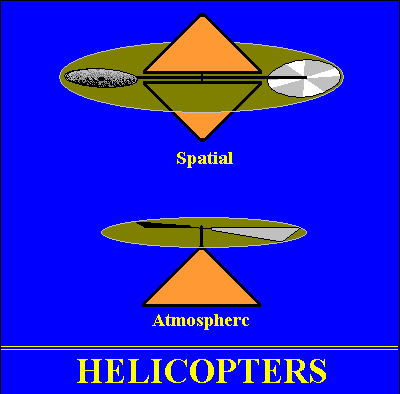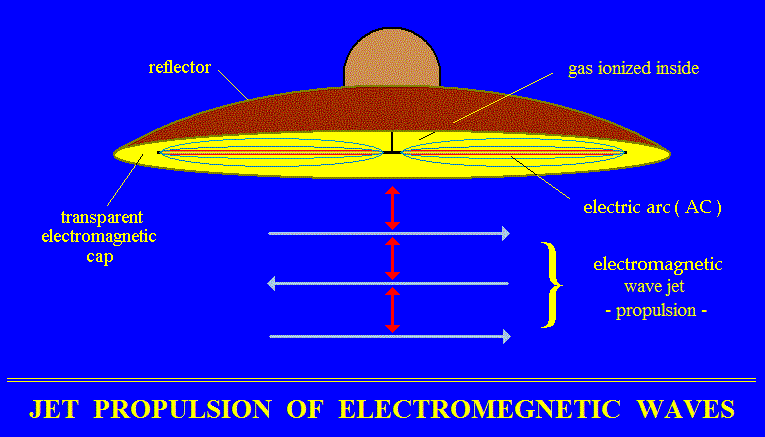Spatial
propulsion variants
The only realisation of space propulsion, looked to be so far the gas
reactive jet.
We are far from the possibilities of the vector space, we have been saying
this for half a century.
We will not understand the nature of space, as long as we remain captive
into corpuscular dogma.
The optimal solution is the direct interactions with the vector space.
If an object, receipting a pulse, can print so simple a wave in vector
space,
than the object equipped with sensors will help us know,
reproduce and control that wave with technical means, other than the impulse.
Until then, we must experiment gradually, the portance quality of the
vector space.
Spatial helicopter
The role of the rotating blades will be replaced with rotary discs, supported
by rotary levers.
Rotating discs with revolutione movements around a central axis, will
interact with the vector space, with the portance forces.
Explanation:
The rotating disc is a gyroscope, but the revolutionary movement prevents
it from conserving its position in space
and the interaction is a couple of useful forces.
It remains to achieve experimentally the plane of the rotating disc, in
which can be realized the optimum portance force.
Propulsion with electromagnetic waves jet
A parabolic reflector with a set of contacts, between which is discharged
the AC, at high voltage, producing electric arc.
The reflector is covered with an electromagnetic transparent cover.
The inner of the reflector is filled with ionic gas to facilitate electric
discharge.
This creates a jet of electromagnetic waves, emitted at the speed of light.
Behind the giant reflector can be placed photovoltaic cells.


